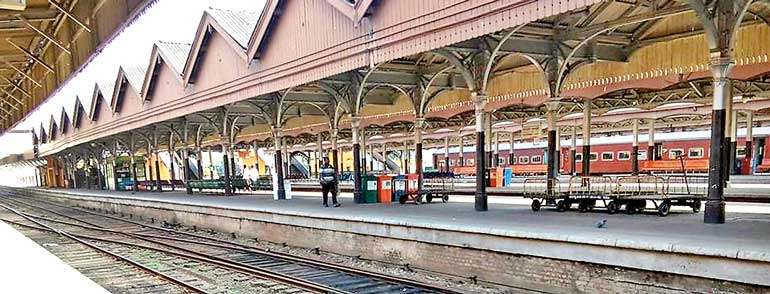Tuesday Feb 17, 2026
Tuesday Feb 17, 2026
Tuesday, 12 December 2017 10:20 - - {{hitsCtrl.values.hits}}

By Ashwin Hemmathagama
– Our Lobby Correspondent
The proclamation made by President Maithripala Sirisena declaring railway services essential under the Essential Public Services Act No. 61 of 1979 published in the Gazette Extraordinary No. 2048/47 dated 9 December 2017, was passed in Parliament yesterday with 58 votes in its favour.
According to Gazette Extraordinary No. 2048/47, the public transport services for passengers or goods, services of any description whatsoever necessary or required to be handled by the Department of Railways including transport services by rail and railway lines, their maintenances and provision of proper security measures, signalling, systems and their operation, issuance of tickets that are essential for the efficient and uninterrupted operation of the services and all work and supply of labour of any description required for the maintenance of the services got declared essential services. However, Opposition lawmaker JVP MP Bimal Rathnayake urged the Government to cancel the gazette notification and reach an agreement with the railway trade unions through discussions.
“It is true that people get harassed through strikes. But most of these strikes take place due to the faults of the employers. With regards to the ongoing strike with the railway, the issue is the salary anomalies of the railway assistants recruited,” he said.
“But based on several other issues there had been union actions initiated in the railway service, especially with the Government unwilling to listen to their grievances. The way the Minister tries to solve such issues is similar to the actions taken at Nandikadal rather than a discussion,” he added, stating that the issue had escalated to a serious level with six trade unions currently involved in the strike.
President Maithripala Sirisena last night requested all Sri Lanka Railway employees on strike to return to work considering the likely inconvenience to be caused to the G.C.E. Ordinary Level Exam candidates and the general public.